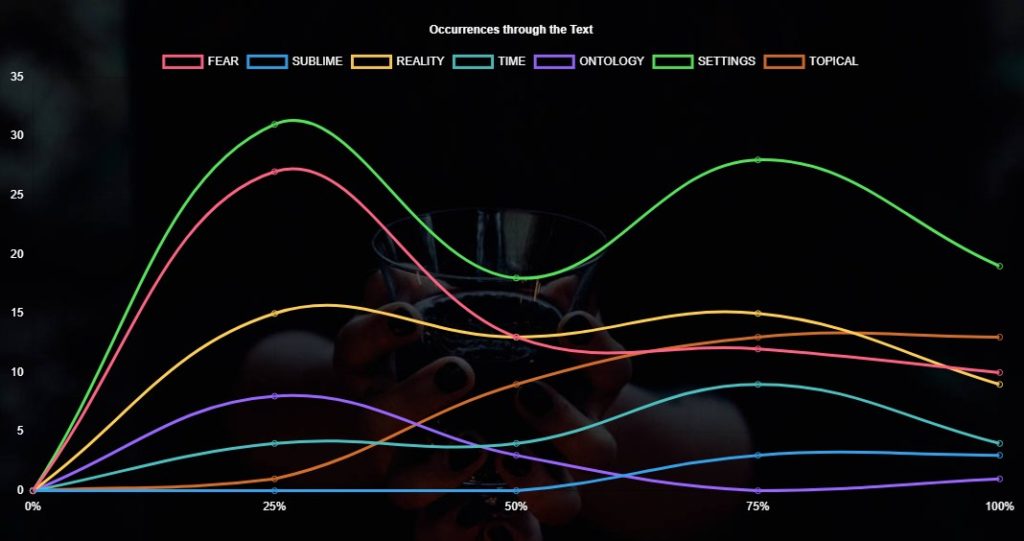If all this sounds familiar, you’re right! I’ve talked about this before, but there’s a crucial difference now. I’m giving you a chance to try it for yourself! Introducing Gothic Meter, a program that takes a text and not only tells you whether it falls within the wider Gothic sphere (Gothic, horror, dark fantasy, or science fiction), but also how and why.
This is an invaluable tool for an author, for reasons that will become evident in this post.
In a nutshell, Gothic Meter is a result of my academic-level familiarity with and knowledge of the Gothic. Everything I know about the Gothic, from the role of the supernatural to ambiguity, and from the sublime to the role of time, has found its use in this program.
Let’s see how; and let’s see why you should care.


